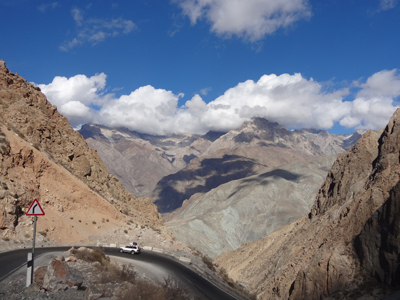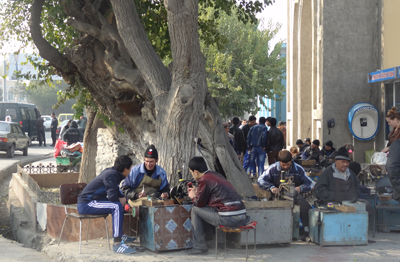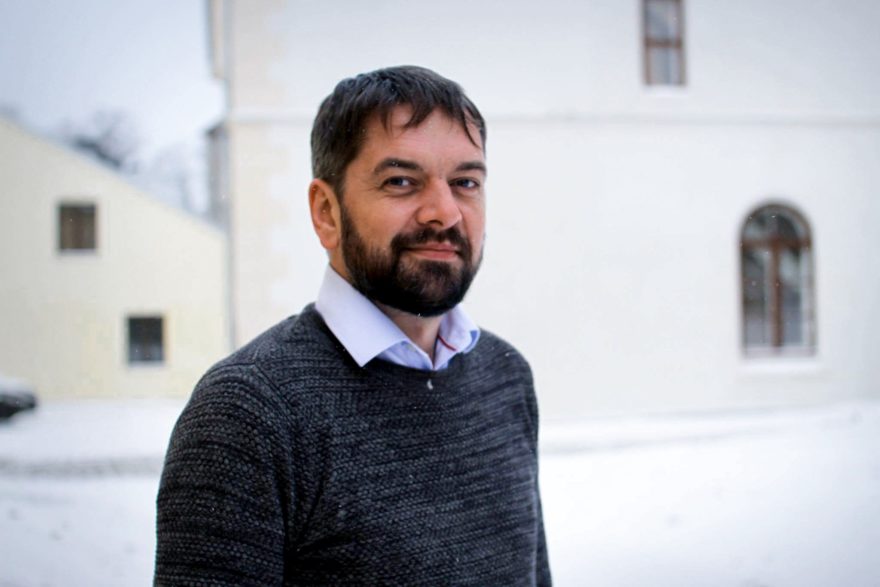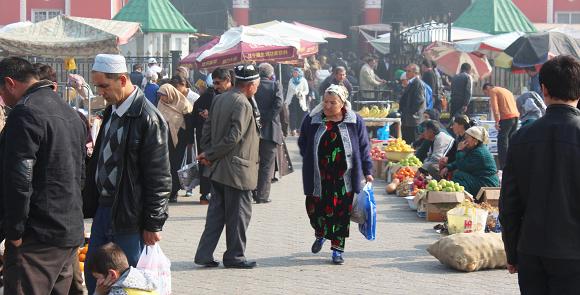President Emomali Rakhmon has led one of the most remote parts of the former Soviet Union since 1994, having come to power during the country’s devastating civil war in the 90s. Tajikistan is the poorest of the Central Asian republics, relying heavily on foreign aid and remittances from the over one million Tajik migrant workers residing in Russia and elsewhere. The country’s human rights record has always been poor – particularly with regard to civil and political rights.

Politically, Tajikistan is ruled by an exclusive elite including President Emomali Rakhmon, who permits little in the way of opposition. During the 2006 presidential elections, Rakhmon and his People’s Democratic Party took 79.3% of the votes. The presidential term has been extended from five to seven years, meaning that this week’s 83.9 % win secures the 62-year old Rakhmon’s position until 2020, when he will have led the country for a total of 27 years.
In the run-up to the 2013 elections this week, candidates in actual opposition to the current government were carefully weeded out through registration procedures and criminal charges.
The two main opposition parties in the country, the Social Democratic Party and the Islamic Renaissance Party of Tajikistan, announced in September that they were nominating a political outsider, Oinohol Bobonazarova, former head of Soros Tajikistan. Bobonazarova’s candidacy was not approved by the Central Election Committee, who cited failure to collect the necessary number of signatures for her registration. Bobonazarova herself said authorities had threatened and intimidated her campaign staff and supporters. The Social Democratic Party subsequently announced they would boycott the elections.
Another widely publicized case was that of Zaid Saidov, a businessman who announced in April of this year that he was forming a new opposition party to challenge Rakhmon’s rule. Saidov was promptly arrested on what his supporters say are trumped-up charges of corruption, polygamy and rape. He remains in custody pending investigation.
The five remaining candidates are widely seen as supporters of Rakhmon’s government, and not as serious contenders to the presidency. Following an OSCE/ODIHR report deeming the media coverage in the run-up to the elections to focus solely on President Rakhmon, the candidates themselves jointly protested these claims, saying the elections were “fair and transparent and in accordance with Tajik law”.

“Of particular concern is the seeming unwillingness of Tajikistan’s government to improve on the electoral process“, said Lene Wetteland, Central Asia Advisor in the Norwegian Helsinki Committee. “While the OSCE/ODIHR presented several recommendations to the government after the 2006 elections, these points have not been implemented. The challenges and concerns remain the same, even seven years later. The international community should press on to ensure that current recommendations are taken seriously. Democratic forces must not be left to fend for themselves.”
Unlike in most other CIS countries, the law does not permit domestic non-governmental organizations to observe inside polling stations on Election Day in Tajikistan. The exception is party representatives and media. This further limits civil society involvement in the political processes in the country.

Around the capital Dushanbe, few indications that a seven-year presidential term was to be decided could be seen in the days leading up to the election. In Khujand, in the Ferghana Valley, the same was true. Election materials supporting the incumbent were omnipresent, in addition to the billboards portraying Rakhmon that are already a common sight in the city. As Election Day coincided with Constitution Day, many attended concerts and festivities organized in the morning and afternoon.
“Common to Rakhmon and several other Central Asian leaders is that they believe stability and security is dependent on their personal leadership and the complete suppression of critical voices”, said Ivar Dale. “Sadly, the opposite is true. Locally, it is considered something of a taboo to speak of the fact that these aging leaders eventually will pass, but it is clear that they will leave behind a population with no experience in healthy political debate, after decades of democratic stagnation. In many ways, they have done little except postpone real independence for their people following the collapse of the Soviet Union, causing great uncertainty about the future,” he added.

Tajikistan’s autocratic form of government is the norm rather than the exception in Central Asia. While a parliamentary form of government has recently been introduced in Kyrgyzstan, the rest of the region has seen few changes in the presidential sphere since the collapse of the Soviet Union. Former Communist leaders Islam Karimov and Nursultan Nazarbayev have held the presidency uninterrupted since 1991 in Uzbekistan and Kazakhstan. In Turkmenistan, a new president came to power after the death of Saparmurat Niyazov in 2006, yet rules the country much in the same manner as his predecessor. Common to all four is a lack of respect for democratic principles, and the rise of personality cults around them and their achievements as leaders. The two oldest presidents in the region, Karimov and Nazarbayev, are 76 and 74 years old, respectively.
Elections in both Tajikistan and other republics have largely become a ritual carefully designed to enhance the incumbent’s public standing, rather than a platform for real debate about the many issues facing the Central Asian republics. While earlier years saw more examples of blatant ballot-stuffing to achieve the desired result, the system has grown more sophisticated over the years, and now relies on a year-round propaganda machinery, combined with suppression of independent media, opposition groups and democratic voices.
Currently, Tajikistan is preparing for the withdrawal of troops from neighboring Afghanistan, with which it shares a border. Considerable resources have been put into strengthening the border areas, where instability is never far from the surface. There are fears that developments in Afghanistan may be used to tighten control over groups not adhering to government policy in Central Asia. In July 2012, violence broke out in the mountainous Gorno-Badakhshan region in the south-east of Tajikistan, where at least 42 people were killed in fighting between government troops and locals in what initially was an operation to detain alleged criminal elements.
